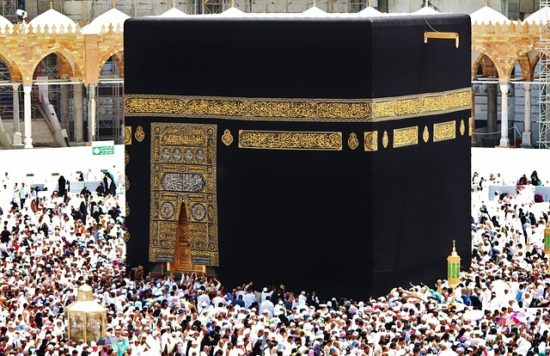
The Concept of Ummah in Islam-Characteristics of Muslim Ummah

Ummah is an Arabic word that is usually translated into English as a nation. In religion, Islam Ummah refers to the Islamic community. The definition of Ummah is a community of believers bound together with a common purpose, that is to worship Lord and with a common goal to advance the cause of Islam. To every Ummah, Allah Almighty sent a messenger for its guidance. The Holy Quran uses the word Ummah to refer to the communities of the past such as the Ummah of Prophet Musa (AS) or the Ummah of Prophet Isa (AS). In the Noble Quran Allah (SWT) says: “And We certainly sent into every nation a messenger, [saying], “Worship Allah and avoid Taghut.” (Quran, 16:36)
According to the religion Islam the Ummah, or Muslim community, is a group of people from diverse backgrounds, ancestry, locations, and nationalities. Muslim Ummah is the community without borders yet united in a very real way, though separated by distance and often constrained by borders they are united. They are one nation or community united under the guidance of the One Lord. In the Holy Quran, Allah Almighty says: “And verily this Ummah of yours is one Ummah and I am your Lord and Cherisher, therefore fear Me and no other.” (Quran 23:52)

Our beloved Prophet Muhammad (PBUH) was sent to educate an Ummah for the benefit of humanity. Holy Prophet Muhammad (SAW) was commanded by Allah Almighty to convey a divine message; both guidance and a warning to all mankind. In the Holy Quran, Allah Almighty refers to the Ummah of Muhammad (SAW) as the best community. “You are the best community (Ummah) raised up for (the benefit of) humanity; enjoining what is right and forbidding what is wrong and believing in God…” (Quran 3:110)
The Islamic Society or Muslim Ummah is unique in its structure, composition and its characteristics. These characteristics are depicted from the Holy Quran and Hadith of Prophet Muhammad (SAW). In the Holy Quran, Allah Almighty mentioned the characteristics of the Muslim ummah in these words: “You are the best of peoples, evolved for mankind, enjoining what is right, forbidding what is wrong and believing in God” (Quran, 3:110).
Another characteristic of the Muslim Ummah is based on Moderation, that’s why it is an Ummah of moderation. This concept of community of moderation is explained in the Holy Quran very nicely in Surah-Al-Baqarah in these words: “Thus have we made of you an Ummah justly balanced, that you might be witnesses over the nations, and the Apostle a witness over yourselves,” (Quran, 2:143).
One of the most important characteristics of Islamic society is Taqwa. This word “Taqwa” may be defined to mean self-discipline, self-control, self-restraint, and self-education. In this regard, Allah Almighty demanded from the Muslim Ummah to have Taqwa. In this regard, the Holy Quran states in Surah Al-Imran: “O you who believe! Fear God as He should be feared, and die not except in a state of Islam.” (Quran, 2:102)
The Holy Quran states another important characteristic: “O mankind! We created you from a single (pair) of a male and a female and made you into nations and tribes, that you may know each other (not that you may despise each other). Verily the most honored of you in the site of God is (he who is) the most righteous of you. and God has full knowledge and is well acquainted (with all things).” (Quran, 49:13)
The concept of advice is another characteristic of Muslim Ummah. Abu Ruqaiyah Tamim BinAwss Al Dari narrated that Prophet Muhammad (SAW) said: “The Religion is Advice. We asked: for whom? He said: for Allah, for His book, for His messengers, for the Imams of the Muslims, and for the rest of the Muslim Ummah.” (Muslim)
The above-mentioned characteristics are some of the characteristics that an Islamic Society or Muslim Ummah is privileged with. If Muslims do adhere to such characteristics and apply them in their daily lives, many of their daily problems will be solved. May Almighty Allah help Muslims to follow the teachings of Islam so as to receive the blessings of Allah (SWT) in this world and the Hereafter. Ameen!




